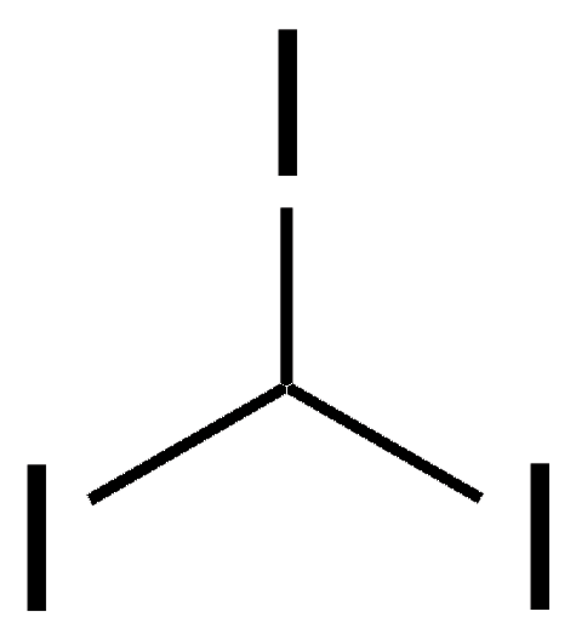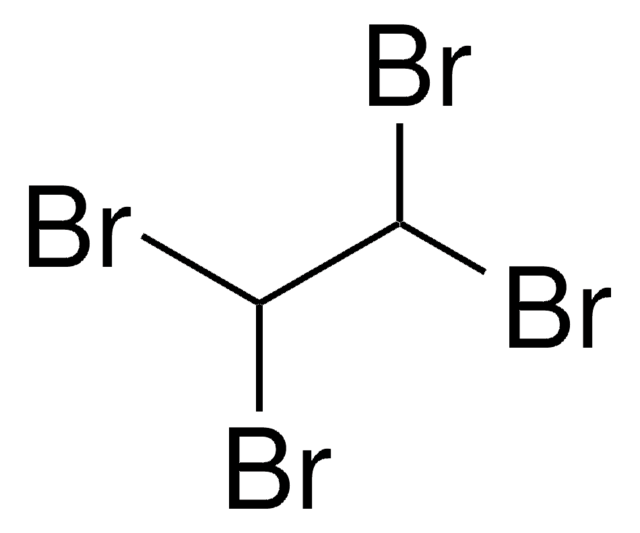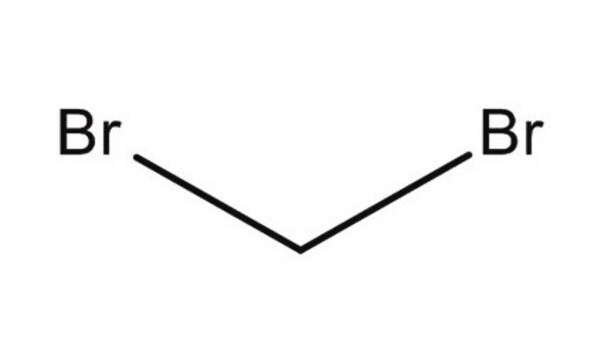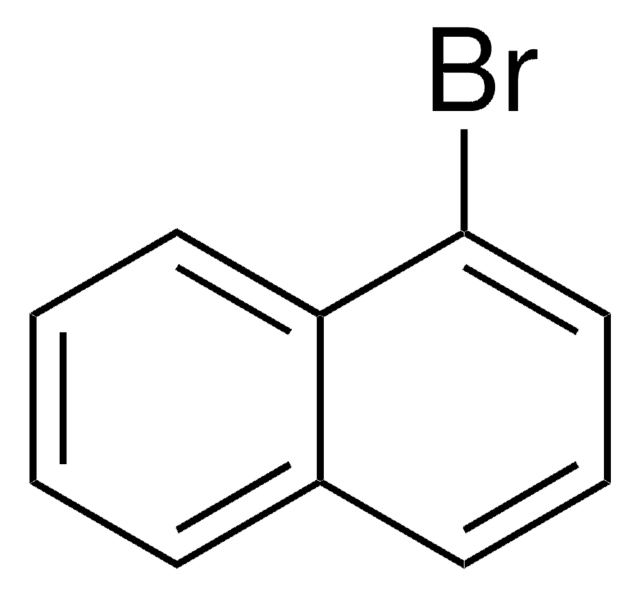158429
Diiodomethane
ReagentPlus®, 99%, contains copper as stabilizer
Synonyme(s) :
Methylene iodide
About This Item
Produits recommandés
Qualité
reagent
Niveau de qualité
Densité de vapeur
9.25 (vs air)
Gamme de produits
ReagentPlus®
Essai
99%
Forme
liquid
Contient
copper as stabilizer
pb
67-69 °C/11 mmHg (lit.)
Pf
5-8 °C (lit.)
Densité
3.325 g/mL at 25 °C (lit.)
Groupe fonctionnel
iodo
Chaîne SMILES
ICI
InChI
1S/CH2I2/c2-1-3/h1H2
Clé InChI
NZZFYRREKKOMAT-UHFFFAOYSA-N
Vous recherchez des produits similaires ? Visite Guide de comparaison des produits
Description générale
Diiodomethane (CH2I2) is an iodine containing organic compound. Its decomposition in acetonitrile initiated by 310nm light has been investigated. Femtosecond pump-probe spectroscopic and ab initio molecular dynamics simulations studies of the photodecomposition of CH2I2 suggest the formation of the isomer of diiodomethane (CH2I-I) as hot photoproduct. In the atmosphere, it undergoes photolysis in the presence of ozone to afford iodine oxide (IO) which results in the formation of aerosols. Its vacuum ultraviolet (VUV) photoabsorption spectrum has been reported.
Application
Informations légales
Mention d'avertissement
Warning
Mentions de danger
Conseils de prudence
Classification des risques
Acute Tox. 4 Oral - Aquatic Chronic 3
Code de la classe de stockage
10 - Combustible liquids
Classe de danger pour l'eau (WGK)
WGK 3
Point d'éclair (°F)
230.0 °F - closed cup
Point d'éclair (°C)
110 °C - closed cup
Équipement de protection individuelle
Eyeshields, Faceshields, Gloves, type ABEK (EN14387) respirator filter
Faites votre choix parmi les versions les plus récentes :
Certificats d'analyse (COA)
Vous ne trouvez pas la bonne version ?
Si vous avez besoin d'une version particulière, vous pouvez rechercher un certificat spécifique par le numéro de lot.
Déjà en possession de ce produit ?
Retrouvez la documentation relative aux produits que vous avez récemment achetés dans la Bibliothèque de documents.
Les clients ont également consulté
Notre équipe de scientifiques dispose d'une expérience dans tous les secteurs de la recherche, notamment en sciences de la vie, science des matériaux, synthèse chimique, chromatographie, analyse et dans de nombreux autres domaines..
Contacter notre Service technique









